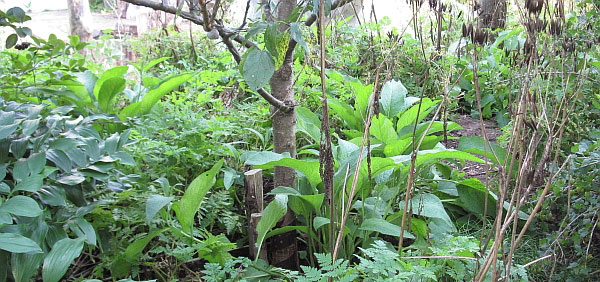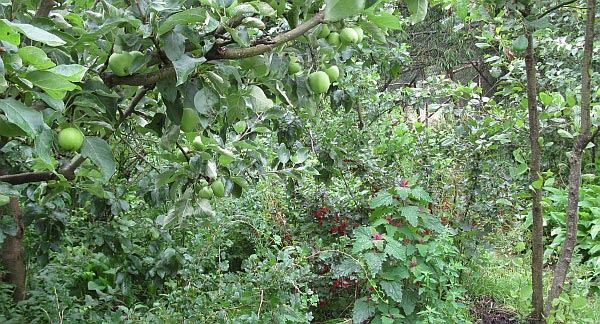Sustainable food production in Sweden - the potential of agroforestrysystems
About this project
Project information
Project status
Completed
Contact
Research subject
Research environments

The project had its focus on the development of agroforestry systems in Swedish conditions, with the aim to evaluate their potential to combine high production of food, to be resource-efficient and generate important ecosystem services such as carbon sequestration and biodiversity conservation. In the project, we identified types of systems that could make important contributions to sustainable food production and appropriate species, and, varieties of edible plants to be included. We also studied what it takes for highly productive agroforestry systems to work in practice.
The project has focused on the agroforestry systems; edible forest gardens, which is a predominantly perennial edible system with a structural design for giving as high a return as possible of useful raw materials during as long part of the year as possible, and silvopasture system with trees and bushes. Thirteen edible forest gardens, 60 m2, with a common design has been established to study the production potential as well as their contribution to the generation of ecosystem services. Hazel groves have also been established in five locations, and on one of the farms a demonstration field for species and varieties of trees, shrubs and perennial herbs that may be suitable to grow in temperate climates has been established. Silvopasture systems was adapted to local conditions and the possibility of the establishment of new trees and the tree density that provides a good mix of meat, timber harvesting and other products and services were studied.

The project was a collaboration between researchers and farmers. The farms that have participated have developed agroforestry systems based on their interests and needs. Methods and experimental settings for different studies were designed by researchers and farmers in collaboration.
The results are important for the challenges that farms are facing today. Challenges in which production of food and energy needs to be combined in a production that reduce its impact on global climate change and provide important ecosystem services, such as carbon sequestration and maintenance of soil fertility and biodiversity.
Published
Björklund, J., Eksvärd, K. & Schaffer, C. 2014. Assessing ecosystem services in perennial intercropping systems – participatory action research in Swedish modern agroforestry. In: Schobert, H., Riecher, M.-C., Fischer, H. Aenis, T. & Knierim (eds.). The 11th European IFSA Group Symposium, 1-4 April 2014, Berlin, Germany. Farming systems facing global challenges: Capacities and strategies, 1950 – 1959.
Björklund, J., Eksvärd, K. & Schaffer, C. 2016. Sustainable food production in Sweden – to grow and eat from perennial intercropping systems – results from an participator learning and action research project. In: Gosme, M. (ed.). 3rd European Agroforestry Conference. Celebrating 20 years of Agroforestry research in Europe. Montpellier, France, 23-25 May 2016, pp. 142 -144.
Poster to 3rd European Agroforestry Conference 2016.
Researchers
Research groups
Collaborators
- Anders Tivell, Perstop, Tiveden Örebro län
- Annika Korhonen, Kampetorp, Bullaren, Västra Götalands län
- Arne Jansson, Holma gård, Höör, Skåne län
- Christina Schaffer, Stockholms universitet
- Emma Hansdotter, Himmelslund, Himmer, Kilsmo, Örebro län
- Esbjörn Wandt, Holma gård, Höör, Skåne län
- Helena von Bothmer, Kosters Trädgårdar, Sydkoster, Västra Götalands län
- Jan Eksvärd, Inspire Action & Research AB
- Joel Holmdahl, Finngården Rikkenstorp, Grängesberg, Örebro län
- Karin Eksvärd, Inspire Action & Research AB
- Karl-Ivar Kumm, SLU
- Kjell Sjelin, Hånsta Östergärde, Björklinge, Uppsala län
- Martha Ternsjö, Perstop, Tiveden Örebro län
- Mats Olsson, SLU
- Oscar Kjellberg, Ankhult, Hörby, Skåne län
- Per Klingberg, Laggarbo, Löa, Örebro län
- Susanne Velander Vretare, Sven Nils i Mannarp, Hörby, Skåne län
- Tomas Stjerndahl, Klockargården, Hörby, Skåne län


